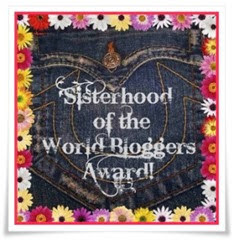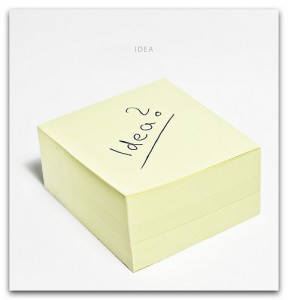by Naomi L. | August 21, 2013 | Blog, Creative Writing, Featured, Tropes |
*click*
Have you ever read a story or watched a movie/play where you noticed a certain item being used as an important plot device in a major scene, only to realize that the object in question had already made an appearance in a previous scene as some seemingly insignificant prop in the background?
Well, what you witnessed was the figurative (or in some cases, literal) firing of a Chekhov’s Gun.
The Loaded Rifle on the Wall
The Chekhov’s Gun is a literary technique that places significance on a certain story element that was introduced earlier on as an unimportant detail. The trope is based on a dramatic principle conceived by Russian playwright Anton Chekhov (1860-1904), which states that every detail presented in a story must either be necessary to the plot in some way or removed from the narrative altogether.
If you say in the first chapter that there is a rifle hanging on the wall, in the second or third chapter it absolutely must go off. If it’s not going to be fired, it shouldn’t be hanging there.
– Anton Chekhov (S. Shchukin, Memoirs. 1911)
It’s important to note here that a Chekhov’s Gun is not necessarily an actual gun; the playwright’s example was merely used in reference to live theater, where a loaded gun on stage would pose an unnecessary safety hazard if it wasn’t going to be used as anything more than a background prop. Rather, the device is a metaphor for any element of a story that can become important later on. It doesn’t even have to be an object; it can just as easily be a character, a skill, a line of dialogue, etc. A full list of possibilities and variants can be found at the TV Tropes Chekhov’s Gun Depot.
Handling a Chekhov’s Gun in Your Writing
There are two main concepts connected with this trope:
- Conservation of Detail – Every detail presented in a story has an important reason for being there
- Foreshadowing – A detail given early on is an indication of a plot point that will happen later in the narrative
While a Chekhov’s Gun should really be used with the former concept in mind, it’s most commonly associated with the latter. Writers will often use this trope as a tool to indicate upcoming events in the story, usually in a subtle manner that goes virtually unnoticed the first time around and becomes clear after the revelation of the foreshadowed plot point.
So how should you use this technique in your own stories? To properly execute a Chekhov’s Gun, the element in question must have some level of presence established in its introduction, not necessarily so much that it gives away a potential plot twist, but enough that the audience will realize it was there all along by the time it becomes significant. This will keep your readers from assuming you pulled some random solution out of thin air to hastily tie the plot together at the end, and thus prevent you from evoking their disappointment.
Also, bear in mind that there is such a thing as too many Chekhov’s Guns in one story. While you shouldn’t feel limited to just one per narrative (and many writers aren’t, myself included), you should still take care not to go overboard with the trope. Of course, these limits may vary depending on the type of work in which it’s used; for example, fantasy sagas or mystery thrillers may depend heavily on these devices to help drive the plot (as seen in the Harry Potter series, which even has its own Chekhov’s Gun page on TV Tropes), whereas simpler action stories could work just fine with only a couple at most. So if you’re planning to write long narratives full of twists, you might be able to make good use of this technique throughout the entire story arc. It’s worth noting, though, that if the plot becomes convoluted enough, your readers might eventually start looking for significance in the tiniest details to try to find Chekhov’s Guns that you may or may not have placed in your story. But then again, maybe that’s exactly what you want.
The Chekhov’s Gun can be a useful device in fiction, provided it’s used correctly and in proper tone with the story. Whether you choose to use this technique for major plot points or just to add some interesting twists, be sure to always keep in mind the importance of only including details with a given purpose, and you’ll be able to build a narrative that highlights the plot and tells a story that can be freely complex on the surface while remaining simple and straightforward at its core. And that, in my opinion, is the best type of story a writer can create. Happy writing!
*BANG!*
by Naomi L. | August 19, 2013 | Blog, Word of the Week |
Word: assuage
Pronunciation: ə-SWAYJ
Part of Speech: verb
Definition:
- make (an unpleasant feeling) less intense
- satisfy (an appetite or desire)
Source: Oxford Dictionaries
Amy: Perhaps you could assuage your guilt through altruism. (pause as Penny looks confused) Which word’s tripping you up? Assuage or altruism?
Penny: Both.
Bernadette: You’ll feel better by doing something nice for someone.
Penny: I actually knew that.
Amy: I never doubted you.
– The Big Bang Theory, (Season 5, Episode 11- The Speckerman Recurrence)
The above dialogue was taken from an episode of The Big Bang Theory, when Penny realizes a certain truth about herself of which she wasn’t aware until her friends brought the subject to her attention: she was a bully in high school. In light of this revelation, Bernadette and Amy suggest she do charity work in order to ease the guilt she starts to feel over the suffering she caused her peers as a teenager, a fact she claims to have already known (though not quite in the same sophisticated manner as her biologist friends).
To “assuage” a bad feeling is to ease it, thus making it less unpleasant. When referring specifically to a wish or appetite, to “assuage” it means to satisfy it. The word can be traced back to the Old French verb assouagier (“appease, calm”), which is based on the Latin roots ad- “to” and suavis “pleasant, sweet”.
This verb is one of several synonyms for “alleviate”, though each seems to have its own specific uses. While “relieve” suggests reducing discomfort to a tolerable level and “allay” is often used to demonstrate a negative emotion (as in fear or suspicion) being put to rest, “assuage” implies an achievement of satisfaction on a greater or more permanent scale. Therefore, I would suggest using the word in reference to the relief of unpleasant feelings that are relatively more intense, such as the guilt that drove Penny to call an old bullying victim of hers and apologize to her for pranks mistakenly thought to have been all in good fun. Whether used to express alleviation of strong emotions or of simple desires, “assuage” is a good verb to consider when seeking the best word on the “relieve” spectrum for your writing. Use it well!
What are your thoughts on this word? Any suggestions for future “Word of the Week” featured words?
by Naomi L. | August 19, 2013 | Blog, News |
Time for another news update! Here are a few things to look out for on my blog in the upcoming weeks.
New Blogging Awards
Some of you may have noticed a fancy new slideshow in my sidebar. Well, since my nomination for the Sunshine Blogger Award by Jennifer M Zeiger, I’ve received two more awards for my blog! One is the Liebster Award, for which I was nominated by Emily Morgan of Emily Morgan Writes and Mama Going Solo. The other is the Sisterhood of the World Bloggers Award, given to me by Lily of Lilica’s Place. Thank you so much, ladies! I’m truly honored!


I’m still working on my post for the Liebster Award, which might take at least a couple of weeks to be published. Since the Sisterhood of the World Bloggers Award has simpler rules to it (just passing the award on to other female bloggers you like, no questions to answer or anything), I may end up sharing that one first. It shouldn’t be too hard for me to find enough nominees for this one, as most of the blogs I’m currently following are written by women. This one is going out to the awesome ladies I’ve been meeting in the blogosphere! Thanks for all your inspiration, and be sure to look for a nomination soon!
Also, with three blogging award nominations and a writing contest win so far, I’m putting together an Awards page for my blog. So exciting to know I’m inspiring my readers! Thank you!
Word of the Week Index
With almost 20 words featured in my Word of the Week segment so far, I think it’s about time for me to add a vocabulary index to my blog. If I can manage to complete it, it’ll be on a new page attached to the Word of the Week category link under Resources in the menu bar. I’ve already installed a table plugin on my site, for easy sorting of words alphabetically or by publish date. Hopefully I can find the time to set it up soon!
Sharing the Link Love
Since I started blogging actively, I’ve been meeting quite a few interesting people with equally interesting websites. After all the inspiration and encouragement I’ve been getting from other writers, I think it’s only fair for me to give something back.
I’d love to share links to the great blogs I’ve been following, so I’m adding a new blogroll widget to my sidebar. Because I want to be fair to everyone featured among my picks, the links will always be randomized, like the quote rotator at the bottom of my site. The blogroll will display links in a different order every time the page is refreshed, so that everyone has an equal chance of being listed first (or at all, when I have more than ten links). I apologize in advance to anyone I may forget to add at first; I can be quite the scatterbrain!
This concludes another news update. Thanks for reading! Have a great week!
by Naomi L. | August 16, 2013 | J.C. Wolfe's Writing, Poetry |
Keep going!
This is great!
I really like that part!
You know you can do it!
What are you doing?
What is this trash?
No one else will read this!
Nobody would like it.
Don’t give up!
You can still make it better.
Try something like this.
Maybe rewrite that scene.
That’s even worse!
Couldn’t you go the other way?
What if this part were different?
Readers will want another ending.
Forget the readers;
You have to like it first.
Are you happy with it yet?
Are you ready for feedback?
Don’t go for critique yet!
You know you want to edit more.
You’re better than this!
Let’s see what else you’ve got.
I think it’s fine like this!
You’re already a good writer.
But you don’t want to be good;
You want to be great!
But you are great!
You love what you write!
No, you’re on your way to great.
Readers have to love what you write.
There you go!
That’s pretty good now.
That’s better.
You definitely improved it.
Is it good enough for you?
Is it good enough for readers?
Great! Now go and show it to the world.
by Naomi L. | August 14, 2013 | Blog, Creative Writing |
Today’s blog post is part of a Secret Subject Swap hosted by blogger Emily Morgan. This topic was sent to me by Jodi Gibson, who asked me to write about “ideas”. Based on that suggestion, I wrote a brief post about my creative writing ideas: where they come from, when they strike me, etc. Thanks for the topic, Jodi!
Where and when do my ideas strike me?
I can’t really pinpoint one main source for my writing ideas, as they seem to come from anywhere and everywhere. I can, however, list some of my favorites.
Sources of My Best Ideas
- Books
- Video Games
- Nature
- Art
- People
Many of my stories have blossomed from ideas that were taken from various books I’ve read and woven together in my mind. Most of my early writing, however, was based on the video games I played all the time, many of which became source material for fanfiction. Now as a biologist, I get plenty of good ideas from observing nature and the behavior of animals, and I’ve also found great inspiration in works of art like music, paintings and photography. But quite a few of my favorite pieces actually grew from ideas that struck me while observing the people close to me, especially my family.
So when exactly do these ideas come to me? Usually when I least expect them. As you can probably tell by the above list, they tend to strike me pretty much anywhere, at any time. But the best ones come while I’m enjoying the things I love most.
How do I get my ideas?
There’s no special routine I follow to inspire new ideas. In fact, sometimes I find that the harder I try to get a good idea, the less likely it is for one to come to me. So instead, I keep on doing whatever I enjoy, and allow the ideas to flow naturally during my “idle thinking”.
That being said, what seems to work especially well to stimulate new ideas for me is researching subjects I find interesting. For example, one of my ideas for a fantasy novel came to me while looking up mythological creatures, as I’ve always been fascinated by ancient and medieval mythology from around the world. Other ideas for science fiction have sparked from the Zoology and Genetics textbooks I used to study when I was in college working toward a Bachelor’s degree in Biology. Even now, I find myself thinking about fictional stories I could write based on the scientific papers I’m working on for Ecology and Evolutionary Biology journals. In short, I don’t really find ideas; they find me.
What do I do with my ideas after I get them?
This is the really exciting part: finding out where a new idea leads. Whenever I get an interesting idea for a story or poem, I make a note of it somewhere on my computer or in one of my notebooks for future reference. Most of them don’t actually go anywhere at first, but I hold on to them anyway in the hope that they’ll prove useful later on (some of them still haven’t). Others start growing into new pieces right away, and in the case of flash fiction and short poems, they can turn into full pieces almost immediately (e.g. “One Mistake“, which was literally finished less than ten minutes after the idea came to me)!
But some of my favorite and most exciting ideas are the ones I get for novels. These I treat with the utmost care, keeping them safe in the back of my mind (as well as a written note, so they won’t be forgotten) and leaving them free to grow in my imagination while I carry on with the rest of my writing and other activities. These ideas are particularly special because they’re the ones that keep coming back, constantly reminding me that I have greater stories to tell, pushing me to release them from the confines of my mind and nurture them with words so they can someday roam free in the outside world as full-grown stories. It may be years before they actually become novels, but I’m sure that when they finally do, they’ll be the ones that were most worth the wait, having blossomed from the most valuable seeds of my imagination.
This has been a special topic post in Emily Morgan’s Secret Subject Swap. To learn more, just follow the button below to her site, and be sure to check out the other blogs participating in the event. Thanks for reading!

Other bloggers in the Secret Subject Swap
Melissa Khalinsky: Melissa Writes
Jodi Gibson: JFGibson
Becky Fyfe: Imagine! Create! Write!
Josefa: Always Josefa
Rhianna: A Parenting Life
Ashley Howland: Ghostnapped
Zanni: My Little Sunshine House







Recent Comments